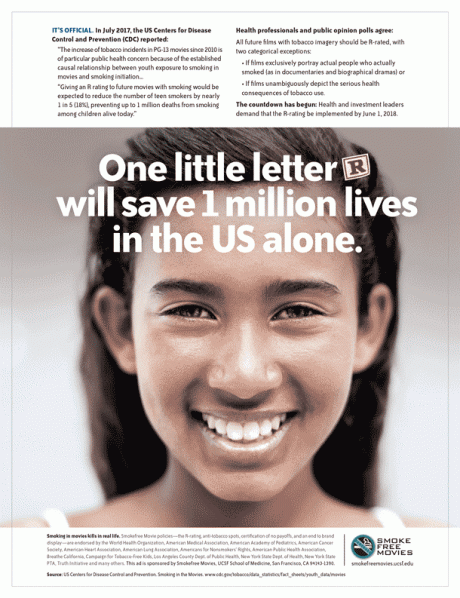December 9, 2017
Lauren Lempert and I submitted this public comment to the FDA on PMI's IQOS MRTP application. The tracking number is and the PDF is available here.
Detailed analysis of the Executive Summary (Section 2.7) submitted by Philip Morris International in support of its MRTP application for IQOS
Stanton A. Glantz, Ph.D. and Lauren K. Lempert, JD, MPH
UCSF Tobacco Center of Regulatory Science
Docket Number: FDA-2017-D-3001
December 9, 2017
This comment is a detailed analysis of the Executive Summary of Philip Morris International’s application, including commentary on specific statements in the Executive Summary. For detailed discussion of these issues, including relevant references, see the public comments that the UCSF TCORS has submitted.[1]
While there are many issues raised in the Executive Summary Philip Morris International (PMI) submitted, there are four overarching problems that represent fatal flaws in the application:
December 8, 2017
My colleagues at UCSF, Stanford, and Georgia State University have submitted this public comment to the FDA. The tracking number is 1k1-908n-holz and a PDF of the comment is available here.
The evidence cited in PMI’s MRTP Application indicates that the proposed labeling and warnings for IQOS will mislead consumers, particularly youth, about the product
Bonnie Halpern-Felsher, PhD;1 Karma McKelvey, PhD, MPH;1 Lucy Popova, PhD; 2 Minji Kim, PhD; Benjamin Chaffee, DDS, MPH, PhD; Maya Vijayaraghavan, MD, MAS; Pamela Ling, MD, MPH; Lauren K. Lempert, JD, MPH; Stanton A. Glantz, PhD
University of California San Francisco TCORS
1 Stanford University
2 Georgia State University
Docket Number: FDA-2017-D-3001
December 8, 2017
December 7, 2017
My colleagues and I at UCSF, Stanford, and Georgia State have submitted this public comment to the FDA on PMI’s IQOS MRTP application. The tracking number is 1k1-9087-458e. A PDF of the comment is available here.
PMI’s MRTP Application for IQOS Does Not Consider IQOS’s Appeal to Youth or Adolescents, or the Likelihood that Youth and Adolescents will Initiate Tobacco Use with IQOS or Use IQOS with Other Tobacco Products
Bonnie Halpern-Felsher, PhD;1 Karma McKelvey, PhD, MPH;1 Minji Kim, PhD; Benjamin Chaffee, DDS, MPH, PhD; Maya Vijayaraghavan, MD, MAS; Lucy Popova, PhD; 2 Pamela Ling, MD, MPH; Lauren K. Lempert, JD, MPH; Stanton A. Glantz, PhD
University of California San Francisco TCORS
1 Stanford University
2 Georgia State University
Docket Number: FDA-2017-D-3001
December 7, 2017
December 7, 2017
As reported in Buzzfeed and elsewhere, Dr. Eunice Neeley has filed a lawsuit against me alleging sexual harassment and discriminatory behavior.
I have read the Buzzfeed article and deny every claim reported to be included in this lawsuit.
These allegations were made formally to the University of California in March 2017 and the University has been conducting an extensive investigation that has not yet been completed. I have been cooperating in every way with the investigation, including sitting for several interviews, each several hours long, as well as providing extensive written records. These records provide specific contemporaneous documentation that demonstrates that the related allegations, as reported by Buzfeed, are not supported by the documentary record.
I have also heard that another woman who has been collaborating with Dr. Neeley will be filing a lawsuit in the near future. She also filed a complaint with the University which is being investigated by the same and other offices. Based on the complaint filed last March I deny the claims made at that time.
December 5, 2017
 The latest ad has been posted to Smokefree Movies. It’s running in The Hollywood Reporter on December 6 and in Variety on December 18. (We have used the graphic before; the text is new.)
The latest ad has been posted to Smokefree Movies. It’s running in The Hollywood Reporter on December 6 and in Variety on December 18. (We have used the graphic before; the text is new.)
Learn more:
• What the CDC says about smoking in movies
• Leading health organizations set June 2018 deadline for R-rating
• Investment managers join call for R-rating tobacco imagery
• How the R-rating will work
• WHO and its global tobacco control treaty back adult-rating and other countermeasures
See the full ad and access PDF version here.
